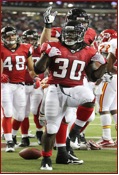This series, we’re exploring coaching distinctions I rely on when coaching ministers for deep, life-changing transformation. Last time, I introduced the very common habit of making up a meaning and attaching it to the experiences of our lives. Seldom do we examine the veracity of these meanings, and so we live as if they are true… as if there’s no other explanation for why we encounter what we do.
 Ever watch the first couple weeks of American Idol? People audition who can no more carry a tune than a rusted hinge. Yet, they’re absolutely convinced they sing well, sound great, and the judges – all music industry pros – are crazy. We watch in stunned amazement.
Ever watch the first couple weeks of American Idol? People audition who can no more carry a tune than a rusted hinge. Yet, they’re absolutely convinced they sing well, sound great, and the judges – all music industry pros – are crazy. We watch in stunned amazement.
How could anyone be that out-of-touch?
Then, we discover why. Departing from the audition they’re embraced by an adoring, doting, cooing parent who continues to lavish empty affirmations on her child. See, the parent has attached meaning to her child and reinforces the delusion over the years—so even industry execs can’t break through. 
A Midwesterner by birth, I now live in Southern California where I often say selfishness is the national pastime. This culture breeds narcissism (delusional self-love) the way concentration camps breed hopelessness. Children receive awards for finishing kindergarten!
In a few years they’ll be perfecting celebratory antics for scoring a touchdown in the NFL— which is what they’re paid to do! Try as I might, I can’t picture Jeff, my tax guy, doing the Dirty Bird every time he finishes a return.
Jesus said: “…you will know the truth, and the truth will set you free.” [Jn 8:32]
The word translated “truth” here means “reality”.
Freedom is possible when we encounter reality and interpret it as it is—without overpowering it with a meaning we devise. As coach, I support my clients to separate reality from meanings we rarely see we’ve assigned to it.
So, whether the meaning you’ve chosen is self-limiting (“I must be a fraud as a pastor”) or self-aggrandizing (“That J. Lo. don’ know nuthin’ ‘bout music”), it’s impossible to accurately assess the events of your life when they’re tangled up with meaning you’ve invented.
“What are people to you?”
In other words, what do people mean to you?
Many see people as a means to an end. Ministers can view their members as “possessions”… and some as “problems”. We can interpret other churches as “competitors”, other ministries as “opponents”.
Uninterrupted, these meanings undermine our effectiveness and make mischief of our message.
Don’t they?
Coaching Distinctions #23